AMD provides new Zen 4 details and touts a greater than 25% performance-per-watt gain
The new CPUs AMD hopes you'll buy for your gaming rigs.
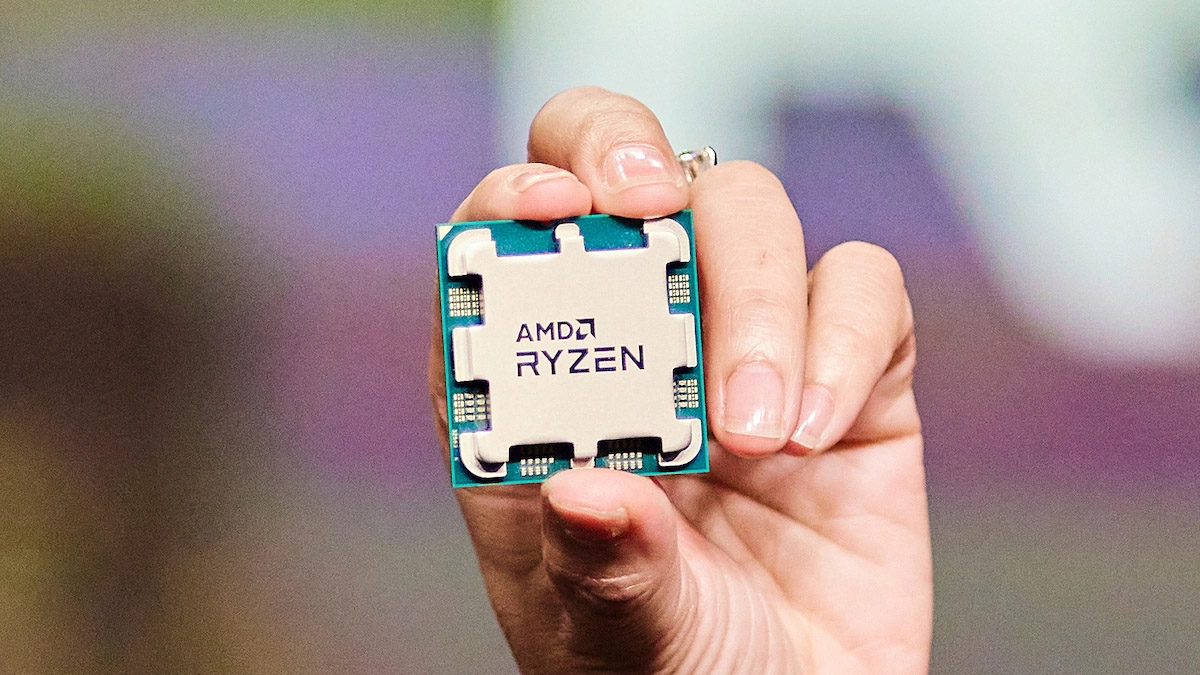
Keep up to date with the most important stories and the best deals, as picked by the PC Gamer team.
You are now subscribed
Your newsletter sign-up was successful
Want to add more newsletters?

Every Friday
GamesRadar+
Your weekly update on everything you could ever want to know about the games you already love, games we know you're going to love in the near future, and tales from the communities that surround them.

Every Thursday
GTA 6 O'clock
Our special GTA 6 newsletter, with breaking news, insider info, and rumor analysis from the award-winning GTA 6 O'clock experts.

Every Friday
Knowledge
From the creators of Edge: A weekly videogame industry newsletter with analysis from expert writers, guidance from professionals, and insight into what's on the horizon.

Every Thursday
The Setup
Hardware nerds unite, sign up to our free tech newsletter for a weekly digest of the hottest new tech, the latest gadgets on the test bench, and much more.

Every Wednesday
Switch 2 Spotlight
Sign up to our new Switch 2 newsletter, where we bring you the latest talking points on Nintendo's new console each week, bring you up to date on the news, and recommend what games to play.

Every Saturday
The Watchlist
Subscribe for a weekly digest of the movie and TV news that matters, direct to your inbox. From first-look trailers, interviews, reviews and explainers, we've got you covered.

Once a month
SFX
Get sneak previews, exclusive competitions and details of special events each month!
AMD's latest financial analyst presentation took place today, and in it we got some juicy information about the company’s upcoming Ryzen 7000 Zen 4 CPUs and RDNA 3 GPUs. I’ll go over the GPU announcements in another post, and focus on Zen 4 CPUs and AMD’s roadmap in this one. AMD disclosed its performance expectations for Zen 4 and bullishly laid out its plans for the next several years.
AMD, for obvious reasons, isn't revealing all of its secrets yet. That will have to wait for the actual launch, but we now know that Zen 4 CPUs will be built on TSMCs 5nm process, will feature an IPC and frequency improvements, and will deliver up to a 125% improvement in memory bandwidth per core. They will require a new socket and motherboards with new chipsets that feature PCIe 5.0 and DDR5 memory support. They will also include AI instructions and AVX-512 support.
AMD fleshed out the somewhat vague, though exciting performance claims it made at Computex. We now know that AMD expects an 8-10% instructions per clock (IPC) increase over Zen 3. The same slide says we can expect greater than 15% single-thread performance gain. The latter claim is interesting as it includes expected significant clock speed increases along with advantages of moving to DDR5 memory. It's possible that AMD is keeping its cards close to its chest as a 15% increase doesn’t sound all that impressive when everything is considered. It’s important to note that >15% is a “greater than” value, so there’s room for surprises yet. We’ll have to wait and see how the chips perform in the real world.
AMD likes to tout its performance per watt leadership, and so it should. The company expects its 16C/32T model, likely to be named the Ryzen 9 7950X to deliver a greater than 25% performance-per-watt improvement over the Ryzen 9 5950X. Zen 4’s multithreading performance looks set to take a big jump, with AMD claiming a 35% performance uplift, much higher than the 15% it expects from a single thread.
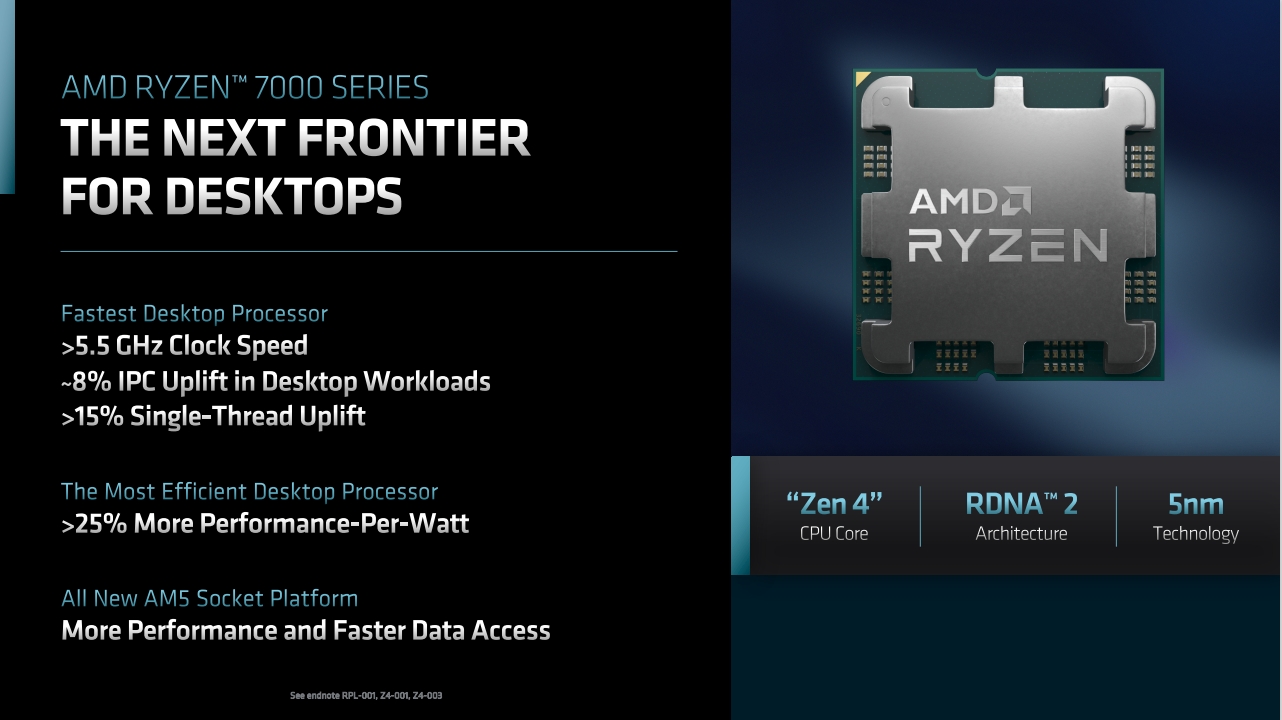
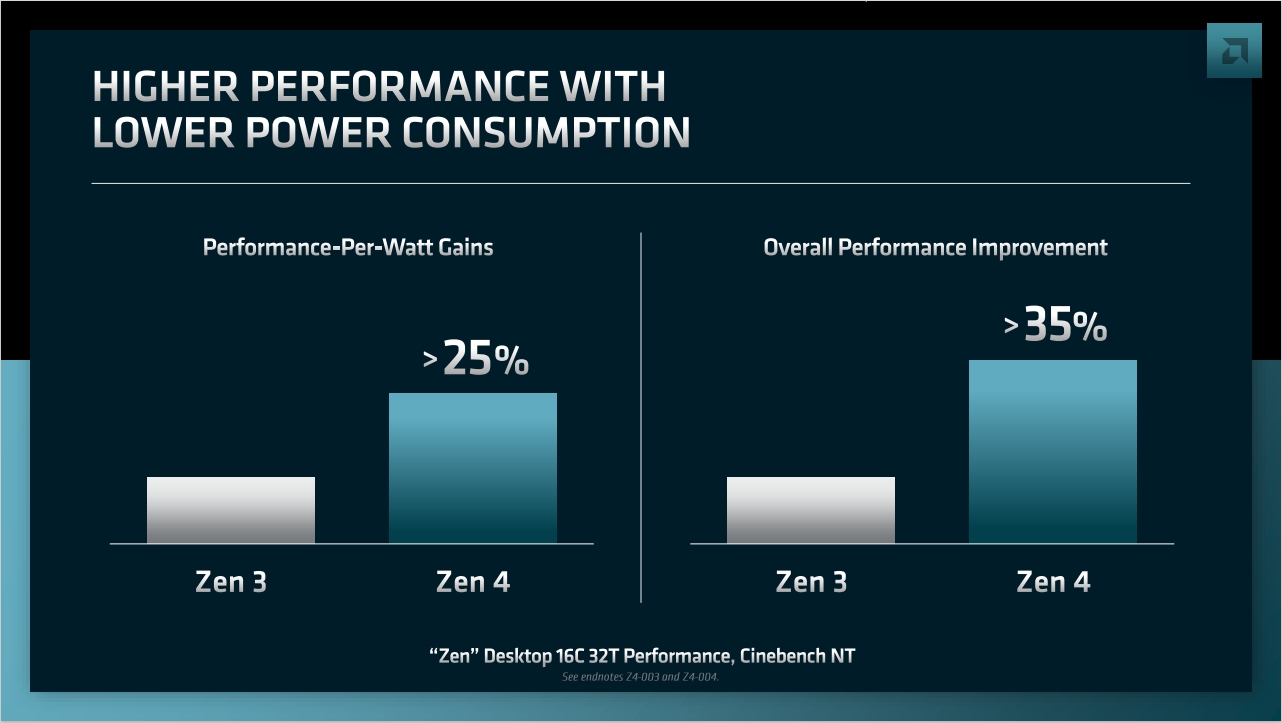

Best CPU for gaming: The top chips from Intel and AMD
Best gaming motherboard: The right boards
Best graphics card: Your perfect pixel-pusher awaits
Best SSD for gaming: Get into the game ahead of the rest
The roadmap is interesting, though there aren’t any real surprises. The key thing to note is that there will be V-cache enabled 7000 series models in the future. If it/they are anything like the 5800X3D, then we can expect to see a decent uptick in gaming performance. These models are likely to go up against Intel’s 14th Gen Meteor Lake CPUs in 2023. That will be an interesting battle.
Zen 4c includes density optimized cores, designed for enterprise and cloud applications. Given AMD’s chiplet architecture, these may include higher core counts at the expense of smaller cache, or lower frequency and single-threaded performance. We can expect EPYC ‘Bergamo’ CPUs with 128 cores and 256 threads in 2023.
AMD will release Zen 4-based Threadripper models. I’d expect Threadripper to remain a Pro series, more or less exclusive to OEMs, but AMD could have an opportunity to market the lower core count Threadripper models to ultra-enthusiasts who don’t necessarily need extreme core counts but instead desire a system with a lot of PCIe lanes for expansion cards. Streamers or users with large drive arrays come to mind.
Keep up to date with the most important stories and the best deals, as picked by the PC Gamer team.
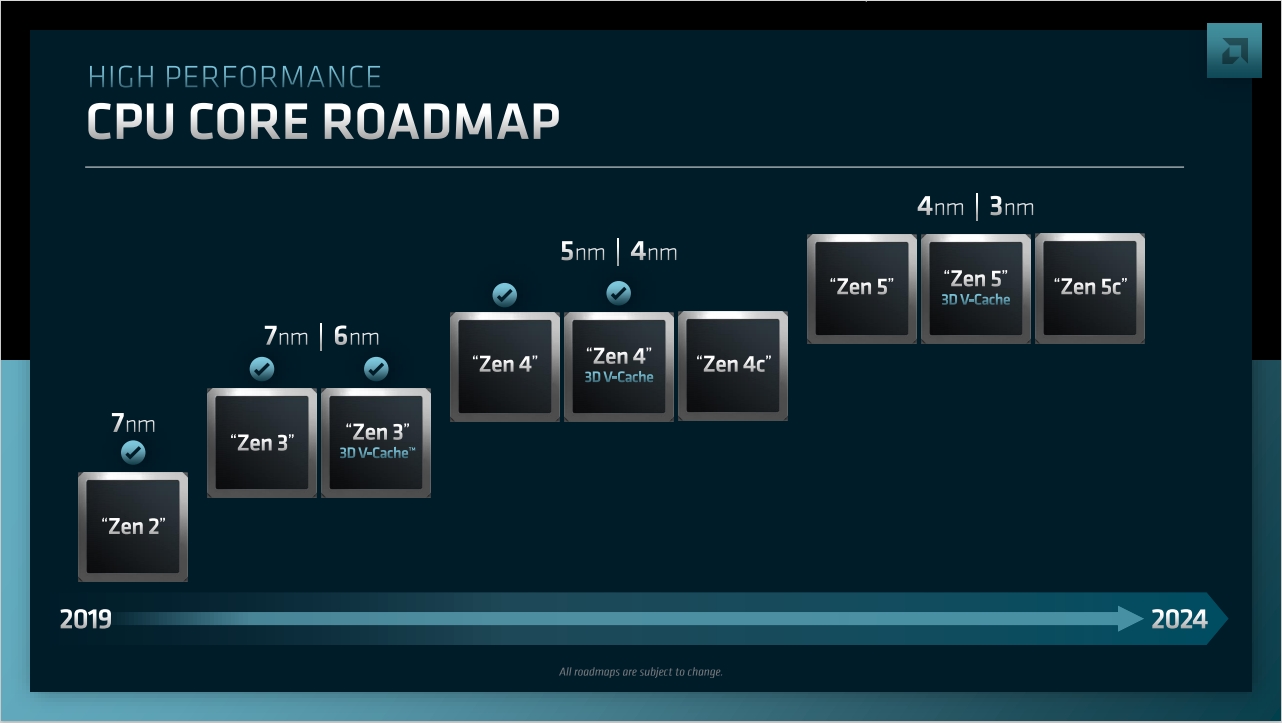
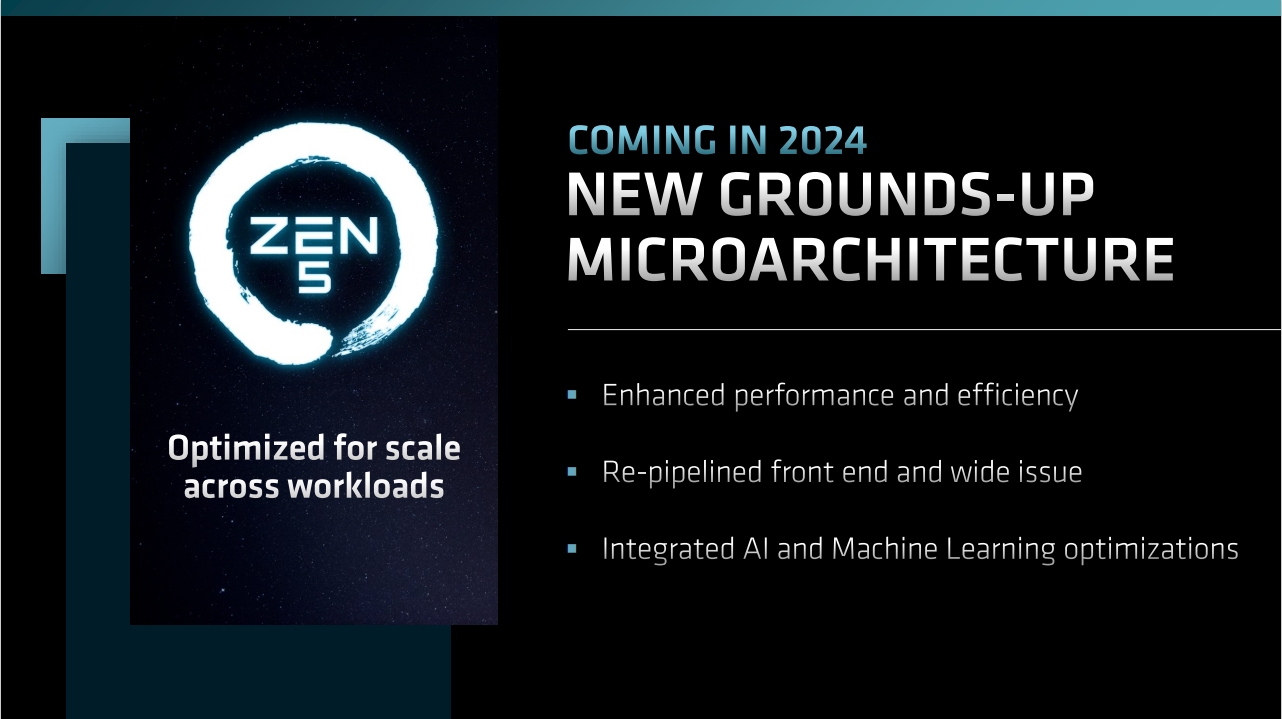
Details about Zen 5 are obviously not very fleshed out this far out from their launch. Zen 5 is purportedly an all-new architecture, though that’s probably an overstatement. Zen 5 follows the same product segmentation as Zen 4, with regular models, V-Cache versions, and Zen 5c chips as well. We can expect even larger IPC and performance per watt improvements and updated instruction sets aimed at accelerating AI and machine learning workflows. They are said to be built on a mix of 4nm and 3nm processes.
AMD didn’t reveal a release timeframe for Zen 5, but given its roughly two-year release cadence, a Zen 5 release in the second half of 2024 would seem like a safe bet. Zen 4 with V-cache will fill the gap in 2023.

Chris' gaming experiences go back to the mid-nineties when he conned his parents into buying an 'educational PC' that was conveniently overpowered to play Doom and Tie Fighter. He developed a love of extreme overclocking that destroyed his savings despite the cheaper hardware on offer via his job at a PC store. To afford more LN2 he began moonlighting as a reviewer for VR-Zone before jumping the fence to work for MSI Australia. Since then, he's gone back to journalism, enthusiastically reviewing the latest and greatest components for PC & Tech Authority, PC Powerplay and currently Australian Personal Computer magazine and PC Gamer. Chris still puts far too many hours into Borderlands 3, always striving to become a more efficient killer.

